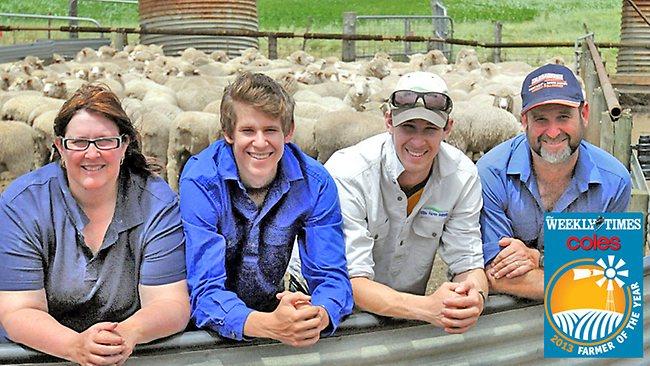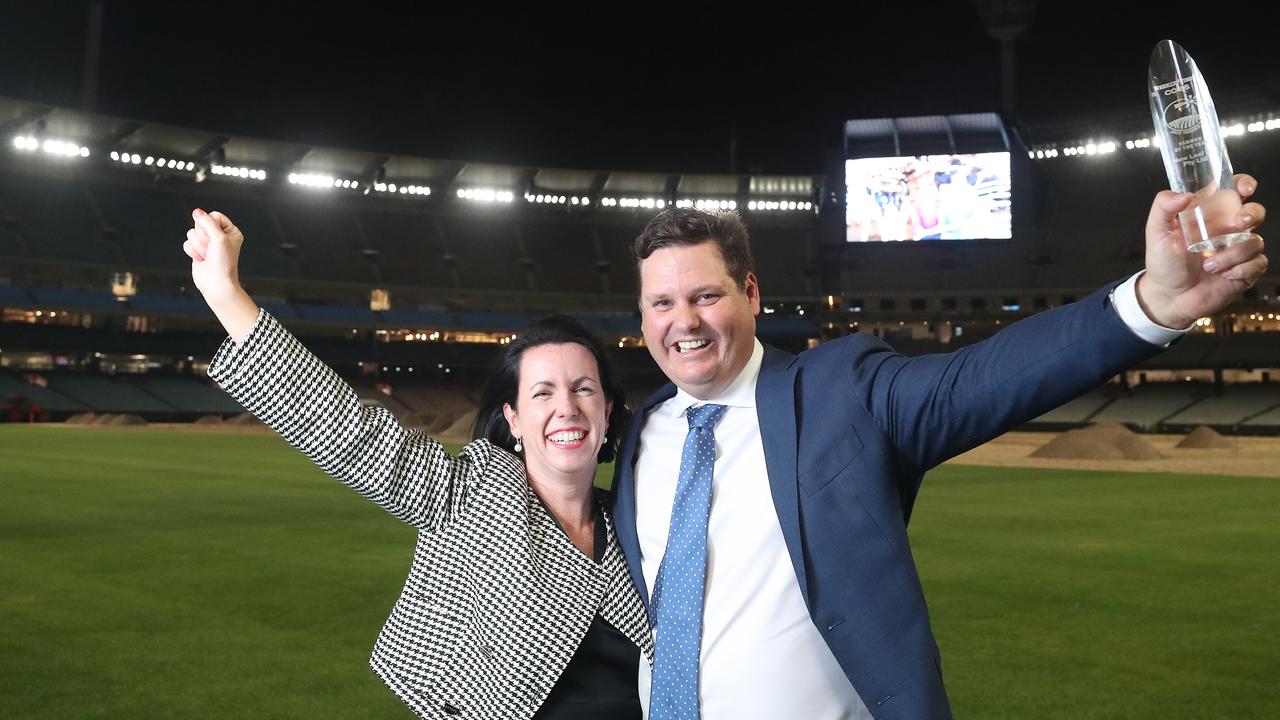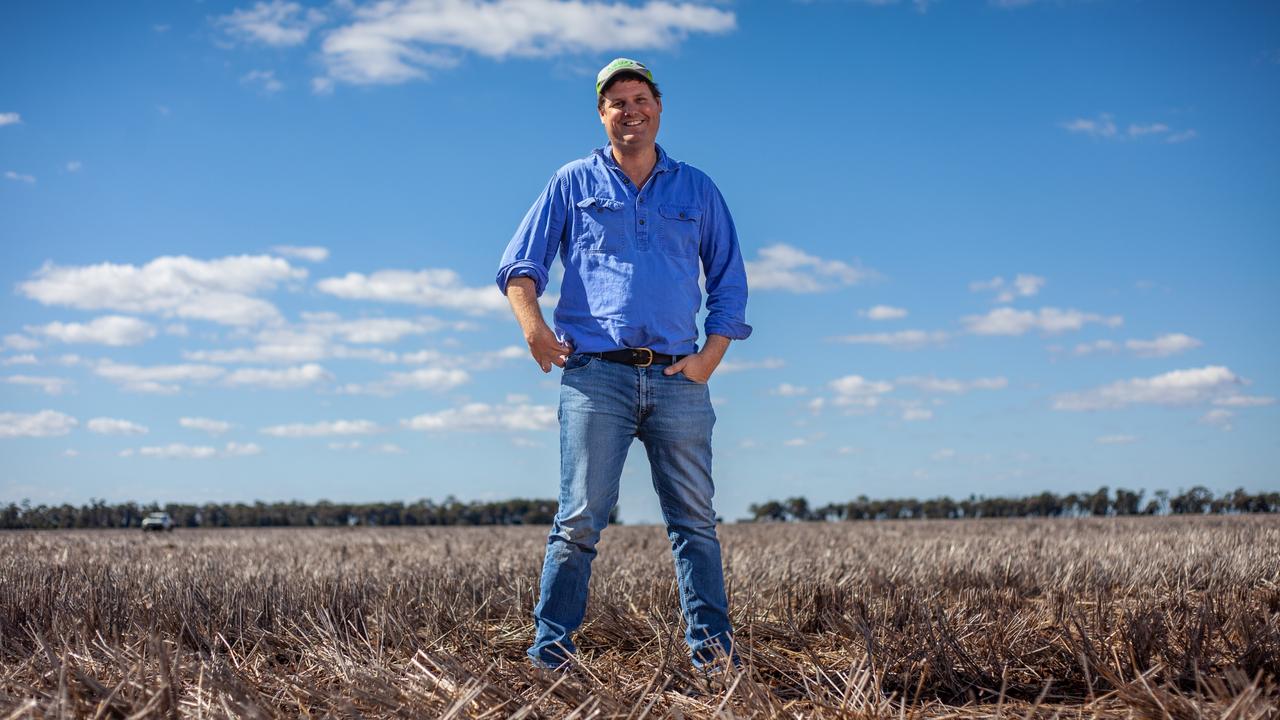Galpin family of Penola, South Australia, see success on the back of high-quality livestock
Farming is a family way of life for the Galpins, of Penola in South Australia's South East.

Farming is a family way of life for the Galpins, of Penola in South Australia's South East.
David and Alison and their large family own and lease 1200ha between Penola and Casterton.
Stud and commercial livestock is what they know and love.
And, if recent sale results and the enthusiasm of their children for the sector are anything to go by, they are pretty good at it too.
The farm has doubled in size since David took over from his parents Joan and Dean.
He worked as a shearer and lamb weighing contractor in the early days and, in partnership with Alison, who takes the lead in the office, has since built two very successful studs and a commercial herd and flock.
The next generation of Galpins is also fired up to take on the challenge of producing high-quality livestock.
The couple have six children. Three adult daughters, Kimberley, Teegan and Aimee, take a keen interest in the farm and help out regularly. Sons Jordan, 19, and Mason, 16, are forging careers on the land. Jordan is already working in the business and Mason, who is finishing Year 11, plans to come home to the farm next year.
Younger brother, Bentley, 14, has a few years yet to decide his path.
The main business is sheep, accounting for three-quarters of the income, but cattle also play an important role.
"We've expanded, buying other blocks in the area since I came home, and we're looking at more," David said.
"We need to keep growing, especially if the kids come home."
The Galpins' Warrawindi property is home to 450 stud Poll Dorset ewes, selling about 200 rams a year.
The stud's base was bought from Inverness Park 10 years ago, and this year's on-farm ram sale produced a complete clearance of 140 rams, averaging a record $1030.
Jordan has also started a Suffolk stud, and Mason has a new Border Leicester business.
The family runs 3000 commercial ewes, selling 2500 prime lambs a year. And, on the cattle front, the Galpins have a Limousin stud, started in 1989.
They have 120 stud cows, 30 recipient cows, and 130 black baldy and Murray Grey commercial breeders. This commercial herd is mated to Limousin sires to producer 130 vealers a year. Thirty-five bulls are sold annually, this year's auction clearing 25 for an average of $5000.
Warrawindi receives up to 650mm of rain annually and soils vary from black peat to sandy flats with limestone underneath to deep sand and loamy red gum country.
This was good and bad for pasture production, David said. "The feed grows at different times of year on the various soil types," he said.
"Pastures are phalaris, sub-clovers, kikuyu and we're trying a new fescue, Finnesse-Q, which seems more palatable than the old fescues. Kikuyu is good on the deep, sandy country, it stops the weeds."
David said managing weeds and getting sustainable feed through the year was the major challenge.
"Our (paddock) feed generally runs out at the end of February, until May, and we start feeding cattle in March," he said.
The Galpins cut hay and buy in other feed, particularly beans.
An underground-water licence and a 20ha pivot give an extra level of insurance that they will always be able to get lambs up to sale weights, regardless of seasonal conditions.
Potatoes or onions are have been grown under the pivot, but this season it's lucerne and fescue pasture.
Developing the sheep enterprise has been one of David's major aims.
His father had Corriedales, he said. So, he decided to introduce Dohnes to improve the 5.5kg/head wool clip. This worked well: going from 30-micron to "beautiful 25-micron wool and doubled the wool cheque".
But David encountered problems with the new breed's feet in the sandy country and has since moved back to Merinos for the self-replacing flock using Lines' Gum Hill sires.
Mason's Border Leicesters are mated to the Merino flock and first-cross ewes retained.
Poll Dorsets are then put over these ewes to produce terminal lambs, turned off at 22kg for the domestic supermarket trade.
David said he had given breed selection careful consideration.
"I found it a bit confusing. I was looking at composites," he said.
But, after working for Thomas DeGaris and Clarkson as a lamb weigher, David said he found the best lambs came from first-cross ewes.
David believes the traditional first or second crosses provide greater consistency as well as better wool and skins.
Lambing percentages are now 100 per cent for Merino ewes, 110 per cent for Merino to Border Leicester crosses, 120 per cent for first-crosses mated to Poll Dorsets and 150 per cent for pure Poll Dorsets.
Lambing is staged from March to May to allow for a steady turn-off. Pregnant ewes are fed beans.
Lambs are sold at 22kg direct off farm to supermarket buyers.
Warrawindi Poll Dorsets are bred to be early maturing so lambs get up to sale weight at 120-150 days.
"With our Poll Dorsets now we're finding we turn off two thirds in the first draft, instead of one quarter," David said.
David said the breed was tracking well, and "remains the dominate breed for lamb producers".
A big believer in Lambplan performance recording, David said it was a "great guide". And the current push by some traditional, visual selection-focussed studs against Lambplan was "damaging for the breed", he said.
"If you aren't recording, you don't know if you are going uphill or downhill."
The Galpins are confident in the future, particularly the lamb industry.
"I think it is the safest industry - the markets are stable and steadily growing - and the most profitable for us," he said.
In the cattle enterprise, the commercial herd produces vealers but David said he may consider keeping the calves longer because vealer prices were not great.
About five years ago, David worked not showing his bulls was losing him about $1000 each to competitors. So, the performance recording-fan took his stud to the show ring. Great success followed.
Alison and David say the family works well together and are passionate about the business.
Jordan and Mason say they see a great future in agriculture for themselves.


